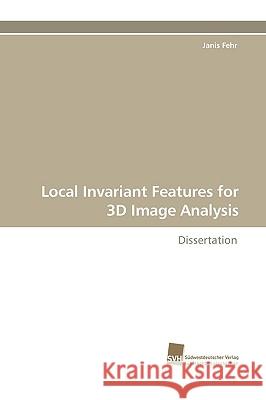Local Invariant Features for 3D Image Analysis » książka
Local Invariant Features for 3D Image Analysis
ISBN-13: 9783838110837 / Angielski / Miękka / 2009 / 264 str.
In this thesis, we present a novel framework which provides generic methods for the automatic analysis of 3D volume data. We combine local invariant feature descriptors with learning techniques to infer mathematical models describing 3D objects (structures) in dense and cluttered data. Using annotated training examples, our overall framework is able to adapt to a wide range of different problems by learning local formations of shape and texture properties. Local feature descriptors play the key role in our concept. Due to the oftentimes high intra class variations and anisotropic nature of the data, we derive features that are invariant towards the most common data transformations, including rotation, gray-scale changes and for some applications also scaling and translation. Throughout this thesis, we provide as many as 14 different local 3D features: from general texture and shape features to very specific and highly specialized detectors
In this thesis, we present a novel framework which provides generic methods for the automatic analysis of 3D volume data. We combine local invariant feature descriptors with learning techniques to infer mathematical models describing 3D objects (structures) in dense and cluttered data. Using annotated training examples, our overall framework is able to adapt to a wide range of different problems by learning local formations of shape and texture properties. Local feature descriptors play the key role in our concept. Due to the oftentimes high intra class variations and anisotropic nature of the data, we derive features that are invariant towards the most common data transformations, including rotation, gray-scale changes and for some applications also scaling and translation. Throughout this thesis, we provide as many as 14 different local 3D features: from general texture and shape features to very specific and highly specialized detectors











